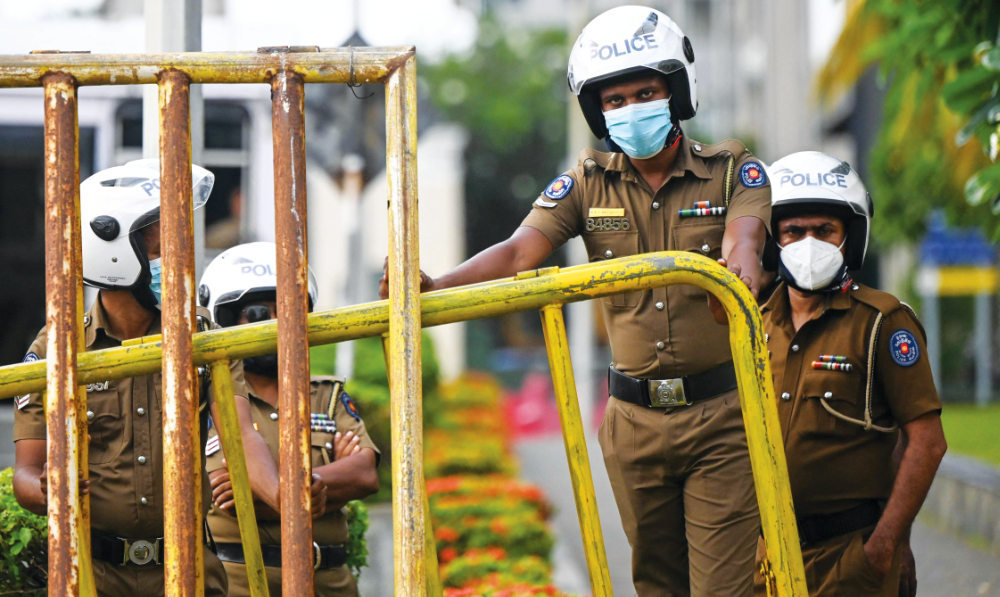COLOMBO: Foreign diplomats on Saturday expressed concerns after Sri Lankan President Gotabaya Rajapaksa declared a state of emergency following escalating anti-government strikes and protests over the country’s worst financial crisis since independence.
Sri Lanka is facing a sharp economic downturn, with many in the South Asian country struggling to afford three meals a day as prices of food items such as rice and oil have risen by up to 200 percent in a month.
Police used tear gas and a water cannon at protests in the capital Colombo on Friday, as shops, offices, and schools were closed across the country and transport came to a near standstill amid widespread strikes and demonstrations against the government.
The emergency measure was taken “in the interest of public security,” according to a statement issued by the president’s media division, which said that the continued protests “only serve to worsen the existing economic crisis.”
The announcement – the second time Rajapaksa has declared emergency law in five weeks – has been denounced by foreign diplomats and prominent groups in the country.
US Ambassador to Sri Lanka Julie Chung said she is “concerned” by the state of emergency, adding that “the voices of peaceful citizens need to be heard.”
“And the very real challenges Sri Lankans are facing require long-term solutions to set the country back on a path toward prosperity and opportunity for all. The SOE (state of emergency) won’t help do that,” Chung said in a tweet.
The EU said the SOE “will certainly not help solving the country’s difficulties and could have a counterproductive effect,” while the UN children’s agency expressed concerns over reports of violence against children during protests.
Protesters have crowded the streets since March, as Rajapaksa and his older brother Prime Minister Mahinda Rajapaksa resist calls to resign. The president and his government, deemed responsible for the enduring crisis that includes daily blackouts and long queues for petrol, are facing a no-confidence motion in parliament.
The emergency declaration gave sweeping detention powers to the military and allowed the president to make laws without parliamentary approval.
Canadian envoy David McKinnon said the demonstrations across Sri Lanka in the past weeks “are a credit to the country’s democracy,” adding: “It’s hard to understand why it is necessary, then, to declare a state of emergency.”
Sri Lanka’s influential lawyers’ body, the Bar Association of Sri Lanka, said it was “gravely concerned” about the measure.
“We call upon His Excellency to revoke the proclamation declaring a state of emergency and to ensure that the fundamental rights of the people … are respected and protected,” the BASL said in a statement.
The island nation of 22 million is on the brink of bankruptcy, announcing earlier this month that it was defaulting on its $51 billion foreign debt. Finance Minister Ali Sabry said this week that the country’s usable foreign reserves have plummeted below $50 million.




